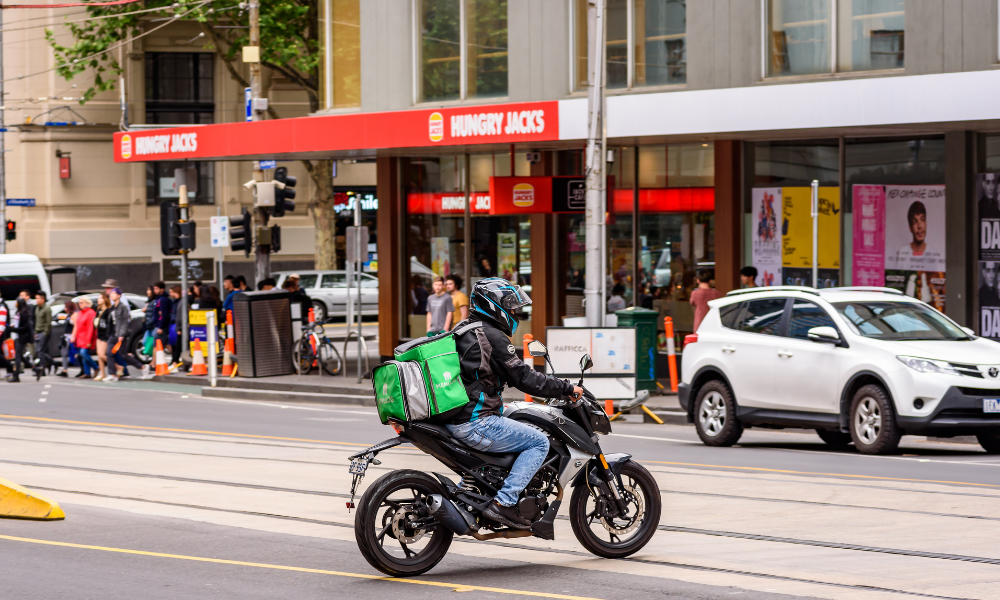
Learn about the new safety laws for food delivery – will other industries follow suit?

Recently, Fair Trading Minister Eleni Petinos declared New South Wales (NSW) as having the “strongest safety environment” for food delivery services. HRD has reported on this new development, but how does the government ensure the continued protection for riders?
The government’s health and safety regulator, Safework NSW, announced that providing personal protective equipment (PPE) for delivery riders is now required for food delivery platforms to guarantee the safety of riders, which already took effect on 1 July. The government’s required PPEs include:
“PPE does not include bike safety gear, such as a helmet, which you must have to be able to ride on public roads in NSW,” Safework NSW said.
Petinos said that the NSW Government had been working with industry and riders on the changes which would provide greater safety and protection for workers in the industry.
“From today [1 July], food delivery booking providers must supply their delivery riders with high-visibility personal protective equipment, including a retroreflective outer clothing item and a bag or container for safely transporting food or drink that comply with the relevant Australian Standard,” Petinos said.
“These reforms are ultimately about keeping riders, who are among some of our most at-risk road users, safer on our roads,” she added.
Based on SafeWork NSW’s fact sheet, platforms should also guarantee that potential risks for riders are eliminated and monitored so actions can be taken to prevent injury and illnesses.
“This includes features of the app or the delivery process that can create a risk to your health and safety, for example, when and how you are required to access the app and ensuring delivery times are based on average rider speeds and predicted traffic conditions,” the government said.
Aside from designing a safe workplace, SafeWork NSW also said that platforms should put policies and processes that could influence the working environment, including “wet weather policies, advice about routing apps and safe routes.”
SafeWork NSW also said that platforms should guarantee that the rider’s vehicle is safe and suitable for the job and that riders are trained in using the vehicle.
Moreover, the government also required platforms to provide information, training, and instruction for riders to do the job safely. Training topics include:
Lastly, the government said platforms should provide information for riders on the whereabouts of facilities such as public toilets, places where riders can fill their drink bottles, and access to first aid.
The government agency also said they would implement on-the-spot penalties of $3,600 to platforms that fail to meet the new requirements for each rider delivering for their platform.
“SafeWork NSW will apply an educational approach to compliance until 1 November 2022 in relation to bags and containers that focuses on ensuring businesses and workers are aware of the new requirement,” the agency said.